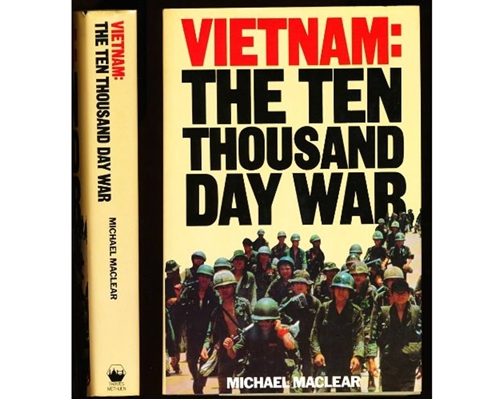Miscalculation, subjectivity, and contempt for the enemy of the French expeditionary force and U.S. intervention
As assessed by French and American military experts, the Vietnam People's Army was unlikely to launch counter-attacks to destroy heavily-fortified base of Dien Bien Phu. Firstly, it was because the Vietnamese military at that time did not possess such means of attack as aircraft, tanks, and armored vehicles, and an air defense force strong enough to protect the campaign formation. Secondly, the Dien Bien Phu Campaign took place in a long period of time and in really dangerous mountainous terrains that were far from the rear. Additionally, it was difficult to ensure transportation and supply of food, weapons and other equipment there. Therefore, many French and U.S. senior officers considered Dien Bien Phu a truly inviolable fortress. Even during the World War II, the French military had never built a field defensive line as strong as the one in Dien Bien Phu.
With a system of entrenched fortifications in the Dien Bien Phu stronghold, the French and U.S. generals appeared very subjective and contemptuous of their opponents. They had simple calculation that Vietnam's conscripted workers and rudimentary roads could not compare with France's modern airlift. According to them, it took a conscripted worker a month to carry 30kg and a bicycle to carry 150kg, and a truck to carry two and a half tons of goods seven nights to reach Dien Bien Phu. So how could they be comparative with a Dakota aircraft carrying five tons flying from Hanoi to Dien Bien Phu in only one and a half hours?
    |
 |
|
The cover of the book “Vietnam: The ten thousand day war” by author Michael Maclear (A filed photo) |
French troops could not have imagined that with their feet, shoulders and bicycles, Vietnamese troops and people had transported thousands of tons of food and necessary equipment to meet the needs of the campaign. With pickaxes and shovels, the Vietnamese military created a giant system of trenches and tunnels that closely encircled and encroached the Dien Bien Phu stronghold, making decisive contribution to the Dien Bien Phu Victory. A French general had to state that the shovel and the pickaxe were weapons as powerful as aircraft and tanks.
Vietnam had clear political and military policies, direction of great leader, and talented commander-in-chief
In the book "Le temps des verites" (Moment of Truth), General Henri Navarre, Commander-in-Chief of the French expeditionary force in Vietnam, admitted that the French’s defeat at Dien Bien Phu was the collapse of colonialist ideas, which was caused by the contradiction between the political and military policies of the current French government and the colonialist and imperialist powers in Indochina. Meanwhile, his opponent had a unified, coherent and thorough approach of national liberation struggle to lead the resistance.
The French general commented that “in the Viet Minh regime, there were no separate political and military policies but unified political and military policies. Those policies were decided by a Central Committee of which the Commander-in-Chief is a member who was also the Minister of National Defense. The military plan was placed in an unabridged plan where everything was directed towards the mission of ensuring success.”
In the book “Agonie de l'Indochine” (Agony of Indochina), Navarre confessed that the Indochina War was not a national war of France. It was an expedition in a distant place, conducted by a lonely professional military because it was an unjust war.
Regarding the political and internal policies of the French Government at that time, Navarre bitterly exclaimed that “But alas! The situation in our side was completely opposite. Never before had we had someone in power from beginning to end... To lead the fight for the past seven years, our 19 consecutive governments had appointed five political leaders in Indochina (Dejsean is the sixth) and six general commanders (I am the seventh). Furthermore, we never had a consistent policy from start to finish. Or to be more precise: We didn’t have any policy at all...”
Navarre admitted that Viet Minh was a true nation in terms of politics. Their direct power spread over half of Vietnam. Furthermore, in the areas controlled by French troops, they had a secret authority that defeated French authority and allowed them to gain very important additional resources.
Looking into the panorama of the Indochina war in the 1953-1954 period, Rivarol Newspaper’s issue dated July 8, 1954 wrote, “The morale of their troops was high. That is the spirit of a winner... On the other hand, it must be said that the people have compassion for Uncle Ho Chi Minh. The people were willing to leave their places to follow Uncle Ho and the Viet Minh. On the contrary, the morale of the French army fluctuated greatly, and the morale of the mercenary Vietnamese troops alongside them had long since collapsed, because they thought the Viet Minh would definitely win.”
Author Michael Maclear, in his book “Vietnam: The ten thousand day war,” made deep and convincing analyses, sketched a realistic panorama, and pointed out one of the reasons for Vietnam's victory over the French colonialists was that Vietnam had a very talented commander-in-chief. “For General Giap, the impression when we met him was that he was similar to Napoleon in terms of physique and knowledge. He was a talented strategist, with the policy of racing for time, first destroy the pawns, then wait for the opportunity to destroy the castle... He lost many battles but he never lost a war,” he wrote.
In his book “Agonie de l'Indochine,” Navarre also showed his admiration for his “respectful opponents.” They were the only political leader: Ho Chi Minh and the only military commander: Giap.
Senior Colonel, Master Nguyen Duc Thang
Translated by Mai Huong